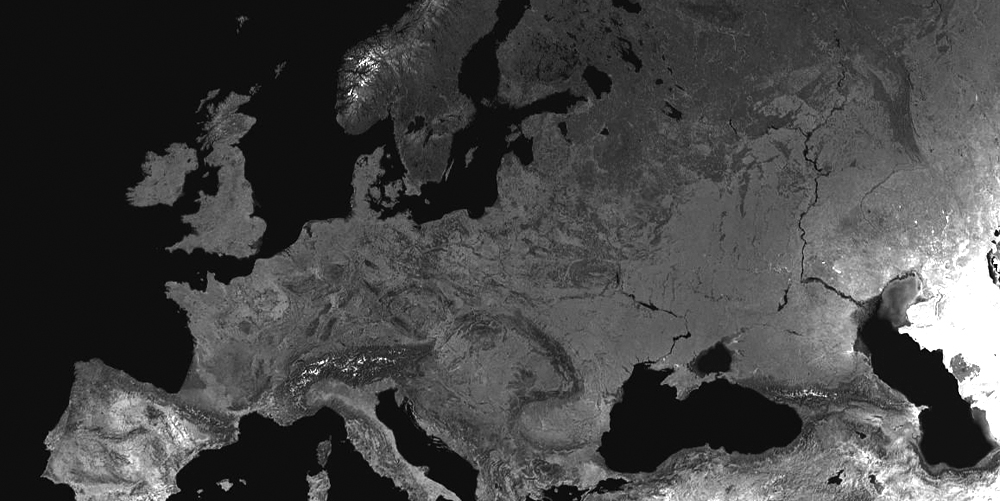Why I believe in EU
One positive of the EU referendum is that it has forced many of us to ask, why really are we in favour of the EU? The campaigns have been criticized for failing to make their points clearly but I think...
One positive of the EU referendum is that it has forced many of us to ask, why really are we in favour of the EU? The campaigns have been criticized for failing to make their points clearly but I think some of this is unfair. In many respects, much of the confusion exists because, at root, the referendum asks: how do you want to be governed? And that is a tough question.
My view is we live in a complex, often confusing, globalized world. People, goods, services – and problems, move about more quickly than they used to. I want to Remain because I believe we are better able to manage the challenges of this world (e.g. migration, climate change, terrorism) and to seize its opportunities if we are part of a bigger club.
The discourse surrounding migration and the EU exemplifies people’s confusion. There are grounds for legitimate debate on migration but it is being used to blame for all manner of social problems, which are only in part to do with it. The EU is similarly blamed, unfairly, as the cause of migration and many social problems. And the irony of all of this is that we actually need the EU to deal with complex challenges such as migration.
There is clearly a lot of misinformation concerning migration figures but it is also evident that this country has also seen a lot of migration recently. Oxford University’s Migration Observatory is a respected non-partisan source and, notably, reports a significant increase in migration with the 2004 enlargement of the EU.[1] It is also clear that migration has an impact on individuals’ perceptions of their communities. I get that some neighbourhoods have changed drastically over the last 40 years, and this upsets some people. It can be unnerving to notice that many of the interactions you used to have with English speakers – on buses, over the phone, in office and cafes – now take place with foreigners. Some people may feel closer to those who appear similar to them and, consequently, alienated by people who do not speak English natively and who have different customs.
The thing is though, migration is blamed for unemployment, crime, putting pressure on public services, terrorism, high house prices, and all manner of problems, and the EU, by proxy, is blamed for all of these. Migration may play a role in some of these but, for most of those issues, its role is small, if indeed it has an affect, and is only one factor amongst many. On crime, for example, some elements of the press have irresponsibly stoked up fears that that migrants are more likely to commit crime.[2] With a PhD in security, and having spent 8 years researching it, I do not profess to be an expert in all aspects of crime and security, but I know a lot about them. According to most recent research findings, there’s pretty much no conclusive evidence linking crime and migration. In fact, both violent and property crimes have declined steadily in the UK since the mid-1990s and during the period when EU migration started to increase.[3]
If anything, the EU helps us manage the country’s most pressing problems. On employment, the EU provides a market, millions of jobs are dependent on, and has enhanced ordinary workers’ rights, on equal treatment and equal pay, for example.[4] On crime, the EU arrest warrant allows the UK to get arrest and detain suspects, through our European partners. On security and terrorism, true, the UK can promote these through non-EU partnerships, such as NATO or the UN, but these partnerships are strengthened and complimented by our membership of the EU.
The major challenges the UK faces in the 21st century are complex and confusing. The press and politicians may try to simplify them, providing simplistic causes and even simpler solutions. But taking a step back makes it clear to me we are a better placed as part of a European Union. Our climate needs protecting. North Africa and the Middle East are beset by poverty, corruption and conflict, precipitating mass migration. America may well elect an absolute moran. Russia is ruled by a group which has all the finesse of its football fans. And our little nation, of merely 64 million, needs to engage with the growing political and economic might of an India, with over 1.2 billion people, and a China, with over 1.3 billion. I think we are in a stronger position in the world if we are in a club of 0.5 billion.
Finally, though, I do not believe it comes down to power alone. I believe in the ideals of the EU. I believe the EU stands for something beyond nationalism, beyond our individual identities. European values, and these are not exclusive to Europe, are, for me, about tolerating religious, national, gender, ethnic and other differences and recognizing that we have far more in common than the things which divide us. I want to see a Europe that is more prosperous, greener, kinder, more just, fairer, and which promotes these values on the world stage. Sure, the EU might not always live up to them but it is our job to change it, not to leave it.
[1] http://www.migrationobservatory.ox.ac.uk/sites/files/migobs/Briefing%20-%20Long%20Term%20Migration%20Flows%20to%20and%20from%20the%20UK_0.pdf
[2] http://www.dailymail.co.uk/news/article-3482057/Leaked-police-report-reveals-spike-migrant-crime-Germany-warns-sex-attacks-violence-radicalisation-rise-further.html
[3] http://www.migrationobservatory.ox.ac.uk/briefings/immigration-and-crime-evidence-uk-and-other-countries
[4] http://blog.oup.com/2016/06/worker-protection-employment-law/
